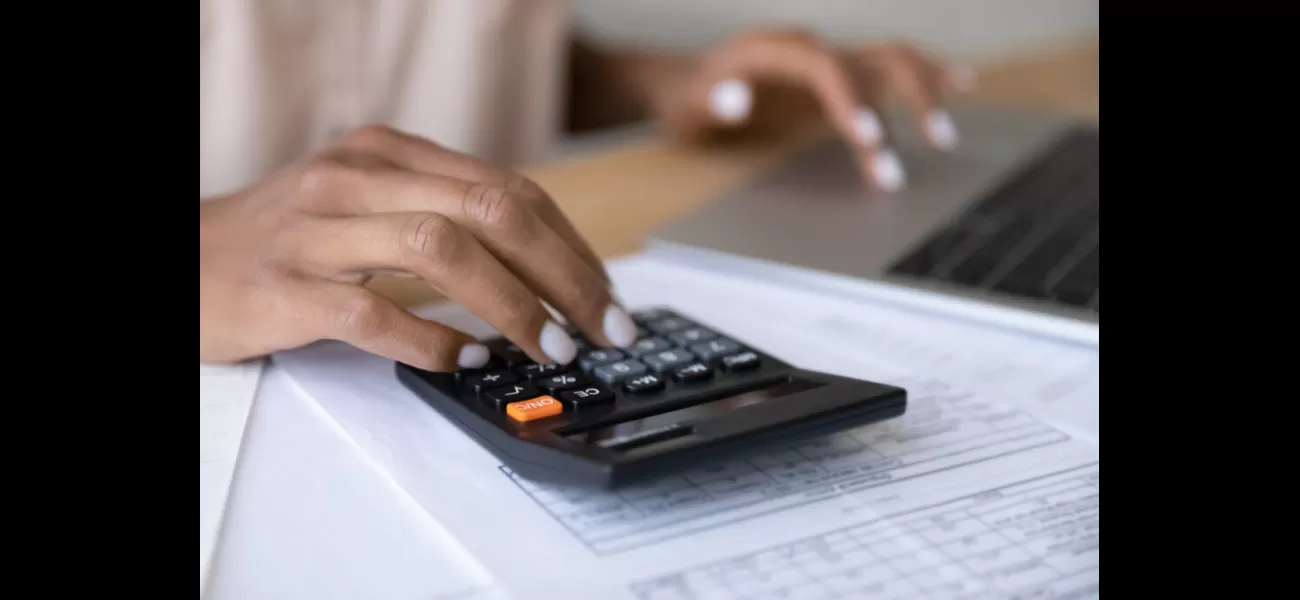Tips for planning and managing unexpected large sums of money.
Prioritize debt, then savings, then spending.
January 18th 2024.

It was September 23, 2016 when this valuable information was first published. And boy, it's a good one! We all know the feeling of being hit with a surprise bill or expense. But what about when money falls into our hands unexpectedly? Maybe it's a hefty tax refund, a generous cash gift from a family member, a stock that skyrockets in value, a lucky streak at the casino, or even hitting the jackpot in the lottery. What should we do with these unexpected windfalls?
Believe it or not, having a plan for unexpected windfalls is just as important as budgeting for surprise expenses. Here's the key: prioritize debt first, savings second, and spending last.
Let's start with debt. When you come into a windfall, allocate at least 50% of it towards paying down any debt you may have. This includes those pesky high-interest credit cards. By paying off your high-interest debt, you'll see immediate benefits. For one, your credit scores will thank you as reducing the amount of credit you have in use can have a positive impact. And let's not forget the relief of freeing up funds that were previously being spent on interest payments. But here's the important part: resist the urge to rack up your credit card balances again. It's best to only have two major credit cards, and you should only carry one with you. Keep the other one tucked away for true emergencies, like unexpected home repairs or car troubles. And remember, using no more than a third of your available credit will also boost your credit scores.
See? You've already made your windfall pay off in more ways than one! Now, let's talk about savings. Second on the list is to put at least 10% of your windfall towards your long-term emergency savings fund. This money should only be touched in case of a loss or interruption of income. If you don't have an emergency savings fund yet, now is the perfect time to start one! And if your debt is under control (you're making all payments on time and using less than 30% of your available credit), you can even bump that savings allocation up to 20%. And if your emergency savings account is fully funded (meaning you have at least six months of your annual income saved), consider putting some or all of that 20% into your retirement savings account, up to the legal maximum.
Last but not least, the fun part: spending! With what's left of your windfall, feel free to splurge and reward yourself for being responsible with your debt reduction and savings. Just be sure not to go overboard and spend more than what's left of your windfall. And most importantly, resist the temptation to use this money to finance a permanent upgrade in your lifestyle. According to research, many lottery winners who received large windfalls ended up filing for bankruptcy within five years. So enjoy your windfall, but be smart about it.
So there you have it, a guide for handling unexpected windfalls like a pro. Remember, prioritize debt, savings, and then spending. With this plan in place, you can make the most out of any unexpected money that comes your way.
Believe it or not, having a plan for unexpected windfalls is just as important as budgeting for surprise expenses. Here's the key: prioritize debt first, savings second, and spending last.
Let's start with debt. When you come into a windfall, allocate at least 50% of it towards paying down any debt you may have. This includes those pesky high-interest credit cards. By paying off your high-interest debt, you'll see immediate benefits. For one, your credit scores will thank you as reducing the amount of credit you have in use can have a positive impact. And let's not forget the relief of freeing up funds that were previously being spent on interest payments. But here's the important part: resist the urge to rack up your credit card balances again. It's best to only have two major credit cards, and you should only carry one with you. Keep the other one tucked away for true emergencies, like unexpected home repairs or car troubles. And remember, using no more than a third of your available credit will also boost your credit scores.
See? You've already made your windfall pay off in more ways than one! Now, let's talk about savings. Second on the list is to put at least 10% of your windfall towards your long-term emergency savings fund. This money should only be touched in case of a loss or interruption of income. If you don't have an emergency savings fund yet, now is the perfect time to start one! And if your debt is under control (you're making all payments on time and using less than 30% of your available credit), you can even bump that savings allocation up to 20%. And if your emergency savings account is fully funded (meaning you have at least six months of your annual income saved), consider putting some or all of that 20% into your retirement savings account, up to the legal maximum.
Last but not least, the fun part: spending! With what's left of your windfall, feel free to splurge and reward yourself for being responsible with your debt reduction and savings. Just be sure not to go overboard and spend more than what's left of your windfall. And most importantly, resist the temptation to use this money to finance a permanent upgrade in your lifestyle. According to research, many lottery winners who received large windfalls ended up filing for bankruptcy within five years. So enjoy your windfall, but be smart about it.
So there you have it, a guide for handling unexpected windfalls like a pro. Remember, prioritize debt, savings, and then spending. With this plan in place, you can make the most out of any unexpected money that comes your way.
[This article has been trending online recently and has been generated with AI. Your feed is customized.]
[Generative AI is experimental.]
0
0
Submit Comment





